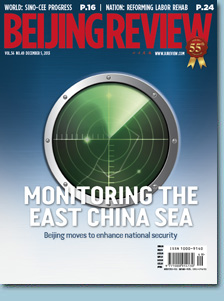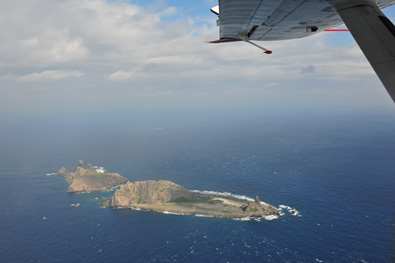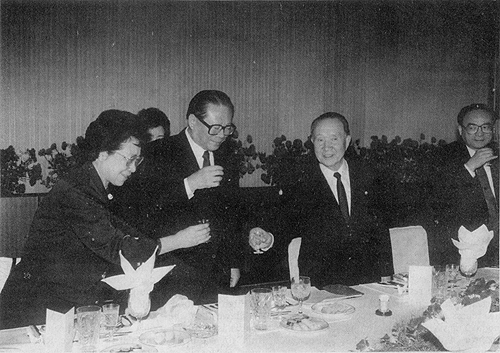 |
|
General Secretary Jiang Zemin attends the celebration activities of the 50th anniversary of the founding of the Korean Workers' Party held in the DPRK embassy to Beijing |
High-level exchanges between the CPC and foreign parties were more active. General Secretary of the CPC Central Committee Jiang Zemin noted that mutual meetings and visits between leaders of different parties and states are very helpful for promoting mutual understanding. Indeed, at a time when the world is still faced with all kinds of instabilities and interdependence among nations is increasing, it is all the more important for the world's leaders to increase exchanges, coordination and cooperation.
Last year the CPC invited more than 150 political parties' delegations to visit China, including those led by General Secretary of the Vietnamese Communist Party Do Muoi, General Secretary of the Israeli Labor Party Nissim Zvili, Deputy General Secretary of the Baath Socialist Party (Syrian) Abdllah Al Ahmar, Deputy General Secretary of the General People's Congress of Yemen Yahya Mohamed Almu-tawakel and Chairman of the South African Communist Party Raymond Mhlaba. Party and state leaders Jiang Zemin, Li Peng, Qiao Shi, Li Ruihuan and Hu Jintao attached great importance to these visits and held talks with visiting delegations on more than 80 occasions.
At the same time, senior CPC leaders, including Politburo Standing Committee member Hu Jintao, visited many countries in Eastern Europe, Central Asia, Asia-Pacific, Western Europe ana Latin America ana received warm hospitality from the governments, ruling parties and other major parties of those countries. The visits to Central Asia, Eastern Europe and Western Europe were unprecedented in the history of the CPC since the end of the Cold War.
Hu also paid visits to Uzbekistan, Turkmenistan and Romania. Leaders of these countries hailed his visit as having a major significance in promoting bilateral relations. While in Romania, Hu made a keynote speech in which he elaborated on the CPC's role in China's social and political life and the principles guiding the CPC's exchanges with foreign parties. These high-level visits served to promote understanding of the CPC's policies by foreign political parties, governments, parliaments and the society at large, thereby contributing to the long-term development of relations between China and these countries.
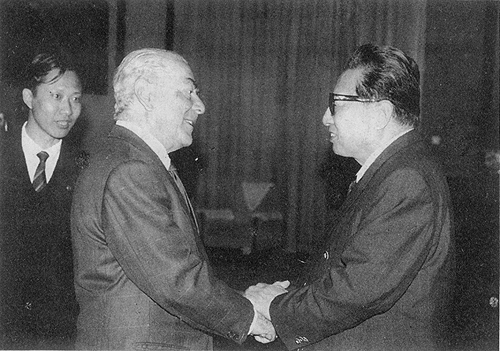 |
|
Chairman of the Chinese National People's Congress Qiao Shi meets with Leonel Brizola, chairman of the Brazilian Democratic Labor Party |
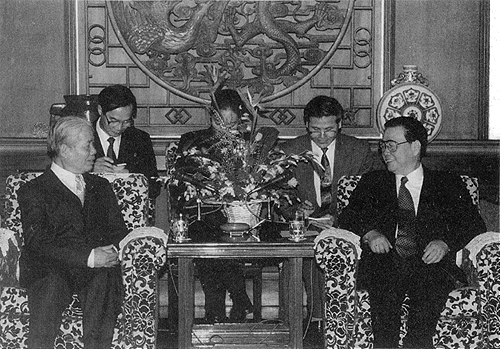 |
|
Premier Li Peng meets with General Secretary of the Vietnamese Communist Party Do Muoi |
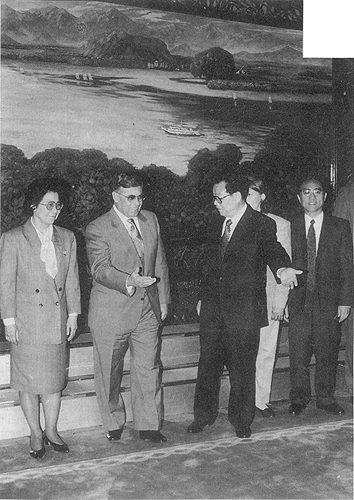 |
|
Chairman of the Chinese People's Political Consultative Conference Li Ruihuan meets with Donald Ramirez of the Partido Social-Cristiano de Venezuela |
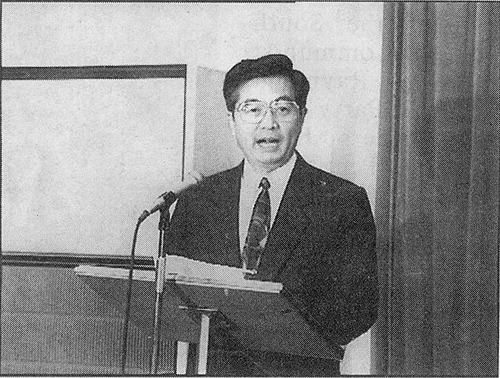 |
|
Member of the Standing Committee of the Political Bureau and Member of the Secretariat of the CPC Central Committee Hu Jintao making a speech on the principles of the CPC foreign exchange in Romania (Photos courtesy of the International Liaison Department of the CPC Central Committee) |
This task necessitated flexible forms of visits: high-level mutual visits, special-interest field studies, economic and trade cooperation, and academic exchanges. CPC leaders paid visits to countries sometimes as guests of the party and sometimes at the invitation of the government. In addition, the nature of the visits has also diversified to include both exchange of experiences in ruling the Party and the state and efforts to explore new channels for bilateral economic cooperation.
Hu's entourage to the three countries, as mentioned above, included provincial leaders who made extensive contacts with business people and entrepreneurs of the host countries and achieved practical results. Member of the CPC Secretariat Ding Guangen paid a visit to Singapore at the invitation of the Ministry of Information and Arts to study the country's construction of ethics. Another member of the Secretariat, Wen Jiabao, visited Thailand and Australia to study the two nations' economic development, in particular their agriculture.
To meet the needs of economic reforms, the CPC has also initiated programs or organized trips abroad on such issues as reforming large- and medium-sized enterprises, curbing inflation, attracting foreign capital, social welfare, investment environment and employment.
The CPC's guiding philosophy for developing foreign relations has become more mature. The Party developed four principles for developing relations with other political parties-independence, equality, mutual respect and noninterference in each other's internal affairs. Its policy of developing ties not based on social systems or ideologies is winning appreciation from more foreign parties.
Hu's speech in Romania systematically summed up the CPC's goal and principles for handling relations with foreign political parties. The speech was warmly received as pointing out an effective way to coordinate inter-party relations.
After winning victory in the presidential election, the Rally for the Republic of France indicated that it would further develop its relations with the CPC and invited a senior CPC delegation to visit that country.
Some socialist parties, social democratic parties and labor parties in Europe also expressed the hope to resume and develop their contacts and exchanges with the CPC on the basis of seeking common ground while shelving differences. Many foreign ruling parties and coalition parties appreciate China's efforts to develop the CPC's foreign relations parallel to the government's diplomatic initiatives.
In the new year, the CPC, as always, will continue to develop friendly relations with political parties of the world and to contribute to China's socialist modernization, world peace and development.
The author is head of the International Liaison Department of the Central Committee of the Communist Party of China

